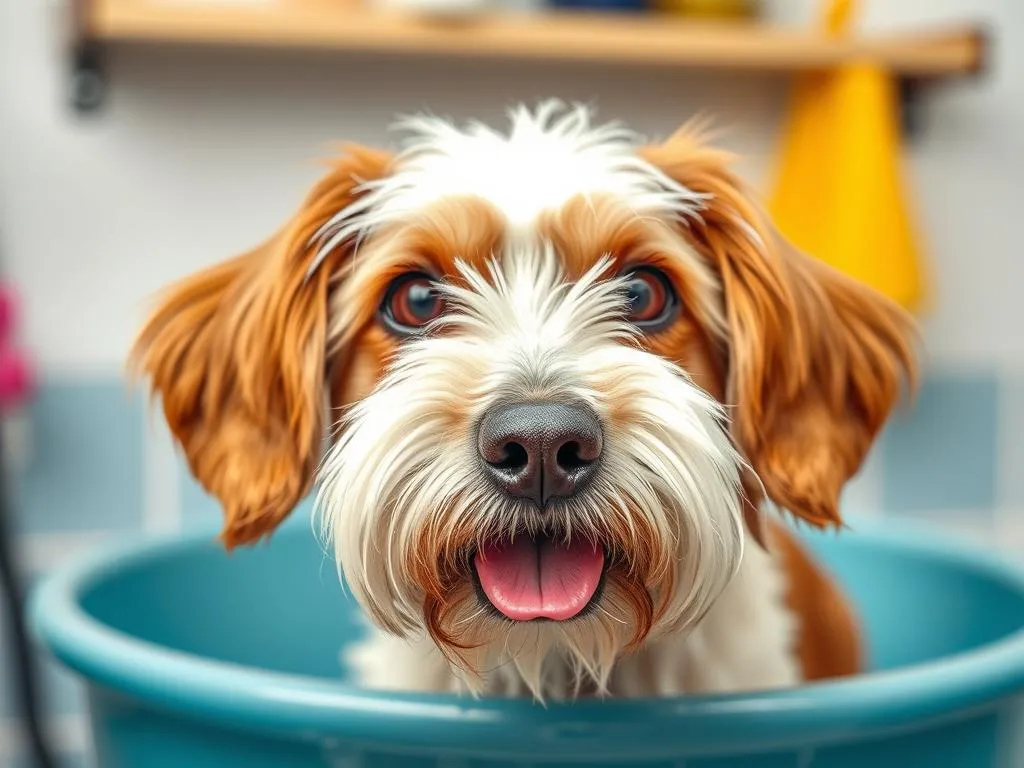
Introduction
Overview of Dog Health Care
Dog health care is a multifaceted approach that encompasses a variety of practices aimed at maintaining your furry friend’s well-being. One crucial aspect of this care is grooming, which plays a significant role in ensuring overall health. Regular grooming not only helps in maintaining a dog’s hygiene but also fosters a deeper bond between the dog and its owner. The act of grooming can help identify potential health issues early on, such as skin irritations, lumps, or infections.
Purpose of the Article
In this article, we will explore the types of dog shampoos used by professional groomers. Understanding the various options available is essential for pet owners who want to provide the best care for their dogs. Selecting the right shampoo can make a significant difference, especially when considering the diverse needs of different breeds and specific skin conditions.
Understanding Dog Grooming
Definition of Dog Grooming
Dog grooming refers to the process of cleaning, brushing, and maintaining a dog’s coat and skin. It includes bathing, nail trimming, ear cleaning, and brushing. Regular grooming is essential for all dogs, regardless of their coat type, as it helps to remove dirt, loose hair, and debris while also preventing matting and tangles.
Benefits of Grooming
Grooming offers numerous benefits, including:
- Health Benefits: Regular grooming helps maintain a healthy coat and skin, reduces the risk of infections, and improves overall hygiene.
- Behavioral Benefits: Dogs accustomed to regular grooming are often less anxious during the process, making it a more pleasant experience for both the pet and the owner.
- Bonding Experience: Grooming provides an excellent opportunity for owners to bond with their dogs, enhancing the emotional connection between them.
The Role of Shampoos in Dog Grooming
Types of Dog Shampoos
When it comes to dog grooming, shampoos play an integral role in maintaining a dog’s coat and skin health. Here are the common types of dog shampoos you may encounter:
- Regular Shampoos: Formulated for routine cleaning and maintenance of a dog’s coat.
- Medicated Shampoos: Designed to treat specific skin conditions, such as infections or dermatitis.
- Hypoallergenic Shampoos: Ideal for dogs with sensitive skin or allergies, these shampoos minimize irritation.
- Natural/Organic Shampoos: Made from natural ingredients, these shampoos are free from harsh chemicals, making them a safer choice for many dogs.
- Flea and Tick Shampoos: Targeted treatments that help eliminate fleas and ticks while also providing preventive care.
Ingredients to Look For
When selecting a dog shampoo, it’s essential to pay attention to the ingredients. Look for shampoos with safe and effective components, such as:
- Oatmeal: Soothes dry and itchy skin.
- Aloe Vera: Provides moisture and has healing properties.
- Natural Oils: Such as coconut or jojoba oil, which nourish the skin and coat.
Conversely, avoid shampoos containing harmful ingredients like sulfates and parabens, which can irritate a dog’s skin. Additionally, maintaining the proper pH balance in dog shampoos is crucial; dog skin is more alkaline than human skin, so using the wrong products can lead to skin issues.
What Dog Shampoos Do Groomers Use?
Popular Brands Used by Groomers
Professional groomers have specific brands they trust for their effectiveness and safety. Here are some popular dog shampoo brands:
- Brand A: Known for its medicated options, this brand offers a range of shampoos that effectively tackle skin conditions while being gentle on the coat.
- Brand B: This brand emphasizes natural ingredients, providing hypoallergenic and organic options that cater to dogs with sensitive skin.
- Brand C: A favorite among groomers, this brand features a wide variety of shampoos tailored to different coat types, ensuring optimal care for every dog.
Factors Groomers Consider When Choosing Shampoo
When selecting a shampoo, groomers take various factors into account, including:
- Dog’s Coat Type and Texture: Different breeds require different care; for instance, long-haired breeds may benefit from detangling shampoos, while short-haired breeds may need something lighter.
- Specific Skin Conditions: Dogs with dry skin or allergies necessitate specialized shampoos to address their unique needs.
- Client Preferences and Sensitivities: Groomers often consider the owner’s preferences, especially if the dog has known sensitivities or allergies.
- Environmental Considerations: Many groomers are now opting for eco-friendly products, reflecting a growing trend in sustainable pet care.
Recommended Shampoos for Different Needs
Shampoos for Specific Coat Types
Selecting the right shampoo based on coat type is vital for effective grooming. Here are some recommendations:
- For Long-Haired Breeds: Look for shampoos with detangling properties to help manage knots and mats.
- For Short-Haired Breeds: A lightweight shampoo that promotes shine and cleanliness without weighing down the coat is ideal.
- For Curly or Wiry Coats: Specialty shampoos that hydrate and define curls while minimizing frizz can be beneficial.
Shampoos for Skin Conditions
Dogs with specific skin issues require careful consideration when it comes to shampoo selection. Here are a few recommendations:
- Sensitive Skin: Hypoallergenic shampoos are the best choice, as they are designed to minimize irritation.
- Allergies or Dermatitis: Medicated shampoos containing ingredients like hydrocortisone can help alleviate itching and inflammation.
Flea and Tick Solutions
Flea and tick prevention is crucial for your dog’s health. Here are some effective options:
- Flea and Tick Shampoos: Look for shampoos that contain natural insecticides like neem oil or chemical options that are effective against pests.
- Preventative Measures: Regular use of flea and tick shampoos can help maintain a pest-free coat, but they should be complemented with other preventive measures like topical treatments or collars.
DIY Alternatives vs. Store-Bought Shampoos
Pros and Cons of DIY Dog Shampoos
Many pet owners consider homemade shampoos as a cost-effective and customizable alternative. Here are some common recipes and ingredients:
- Oatmeal Shampoo: Blend oats with water to create a soothing paste that helps with dry skin.
- Baking Soda Shampoo: A mixture of baking soda and water can help clean while neutralizing odors.
Benefits: DIY shampoos can be tailored to meet specific needs and are often more affordable.
Drawbacks: However, they may lack the effectiveness of professionally formulated shampoos and could potentially harm the dog if not made correctly.
When to Use Professional Grooming Services
While DIY grooming can be beneficial, there are instances when professional grooming services should be utilized:
- Severe Matting: Dogs with severely matted coats require professional grooming to avoid pain and injury.
- Skin Conditions: If your dog has a specific skin issue, a groomer can recommend appropriate treatments and products that are safe and effective.
- Behavioral Challenges: For dogs that are anxious or aggressive during grooming, professionals have the skills and tools to manage these behaviors safely.
Conclusion
Selecting the right dog shampoo is an essential component of maintaining your dog’s health and hygiene. It’s critical to consider your dog’s specific needs, coat type, and any existing skin conditions when choosing a shampoo. For personalized recommendations, consulting with professional groomers can provide valuable insights tailored to your dog’s unique situation. Regular grooming, combined with the right products, ensures that your furry friend remains healthy, happy, and well-groomed.
FAQ Section
Common Questions About Dog Shampoos
What ingredients should I avoid in dog shampoos?
Avoid shampoos containing sulfates, parabens, and artificial fragrances, as these can irritate your dog’s skin.
How often should I bathe my dog?
The frequency of baths depends on the dog’s breed, coat type, and activity level. Generally, a bath every 4-6 weeks is sufficient for most dogs.
Can I use human shampoo on my dog?
No, human shampoos are formulated for human skin, which has a different pH balance than dog skin, potentially leading to irritation.
What should I do if my dog has a reaction to shampoo?
If your dog shows signs of irritation or an allergic reaction, discontinue use immediately and consult your veterinarian for advice on treatment.









